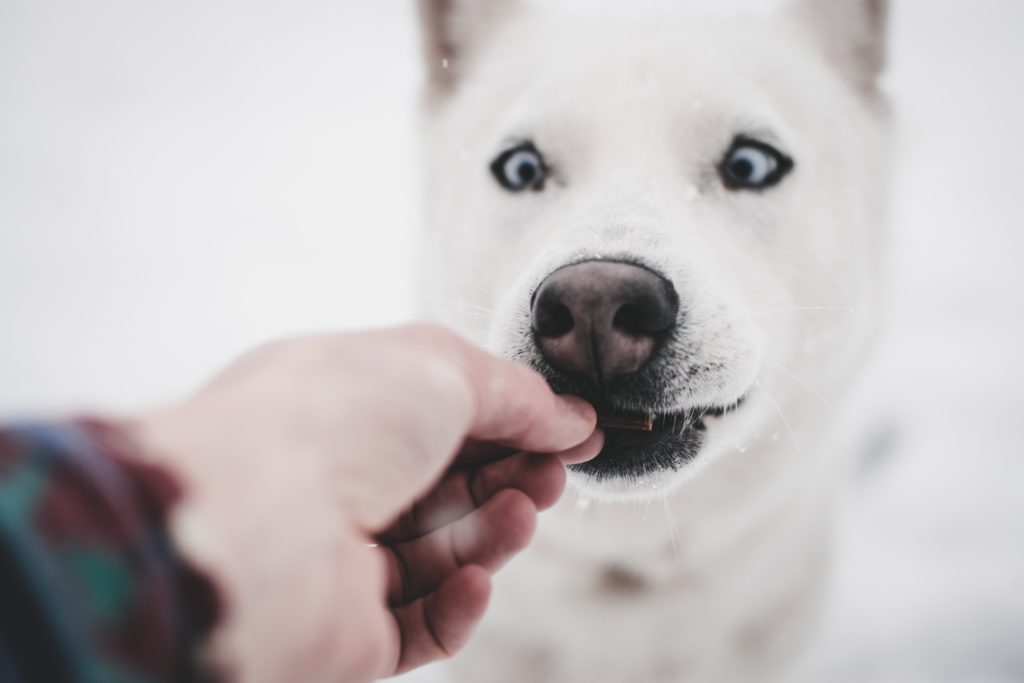When you’re in the pet store thinking about what treats to buy Fido, you’ve probably come across dental chews. Maybe you’ve even bought them for your dog.
But do they actually improve his teeth?
In this post, we’ll examine how chews affect your dog’s oral health and delve into which ones work best.
Dog Dental Issues
Just like humans, dogs can also have dental problems.
Problems can include:
- Gum disease
- Pain
- Plaque build-up
- Bleeding or swollen gums
- Stinky breath
Oral issues like gum disease can cause:
- Loss of appetite
- Trouble eating
- Broken or lost teeth
- Infection and organ damage (if the bacteria gets into the bloodstream)
Do Dog Chews Prevent Oral Problems?
Many dental problems result from plaque build-up. A good way to prevent this is through chewing. When Fido chews on anything, whether it’s a toy, treat or stick, it can help clear the plaque and result in better teeth.
Although you can buy dog toothbrushes, dogs mouths don’t need to be brushed as often as humans because they have a tendency to chew.
Since most dogs don’t like having their teeth brushed, a good way to ensure plaque removal is by using dental chews. Since most are designed to be tasty, your dog will gladly accept the treat without any fuss. It’s kind of like hiding vegetables in a child’s meal: They know it’s tasty, but they don’t know the health benefits.
Dog chews are also designed in different shapes that will scrape the gunk off easier.
If you don’t think that simply chewing will improve your dog’s oral health, consider this: Making kibble 50% bigger led to 42% less tartar on dog teeth, according to one study. It’s also been shown that coating chews or toys in polyphosphate can reduce the build-up by 55%. The reason this works is because the substance isolates calcium on the teeth, preventing plaque from becoming tartar.
Which Dog Dental Chews Can I Trust?
Luckily, you don’t need to investigate every dental chew to determine if its claims are true.
The Veterinary Oral Health Council (VOHC) has done it for you. It has analyzed products to see which ones should get their seal of approval. Chews must reduce plaque and tartar by at least 10%. If it contains an anti-plaque substance, it needs to reduce it by at least 20%. See the full list.
Aside from getting a quality product, there are a few other things to consider when choosing the perfect dog chew:
- Does your dog have bad breath? If so, you can purchase one specifically designed to make your dog smell fresher.
- How aggressive is your dog? If he has a sharp bite, getting more durable dental chews is a good idea.
- How healthy is it? While they serve a purpose, dog chews still add calories to his diet, so make sure you choose a healthy brand.
- Do other owners like it? Before purchasing one, read reviews to see how other dogs like it. For example, this post outlines the pros and cons of 8 best dental chews for dogs.

